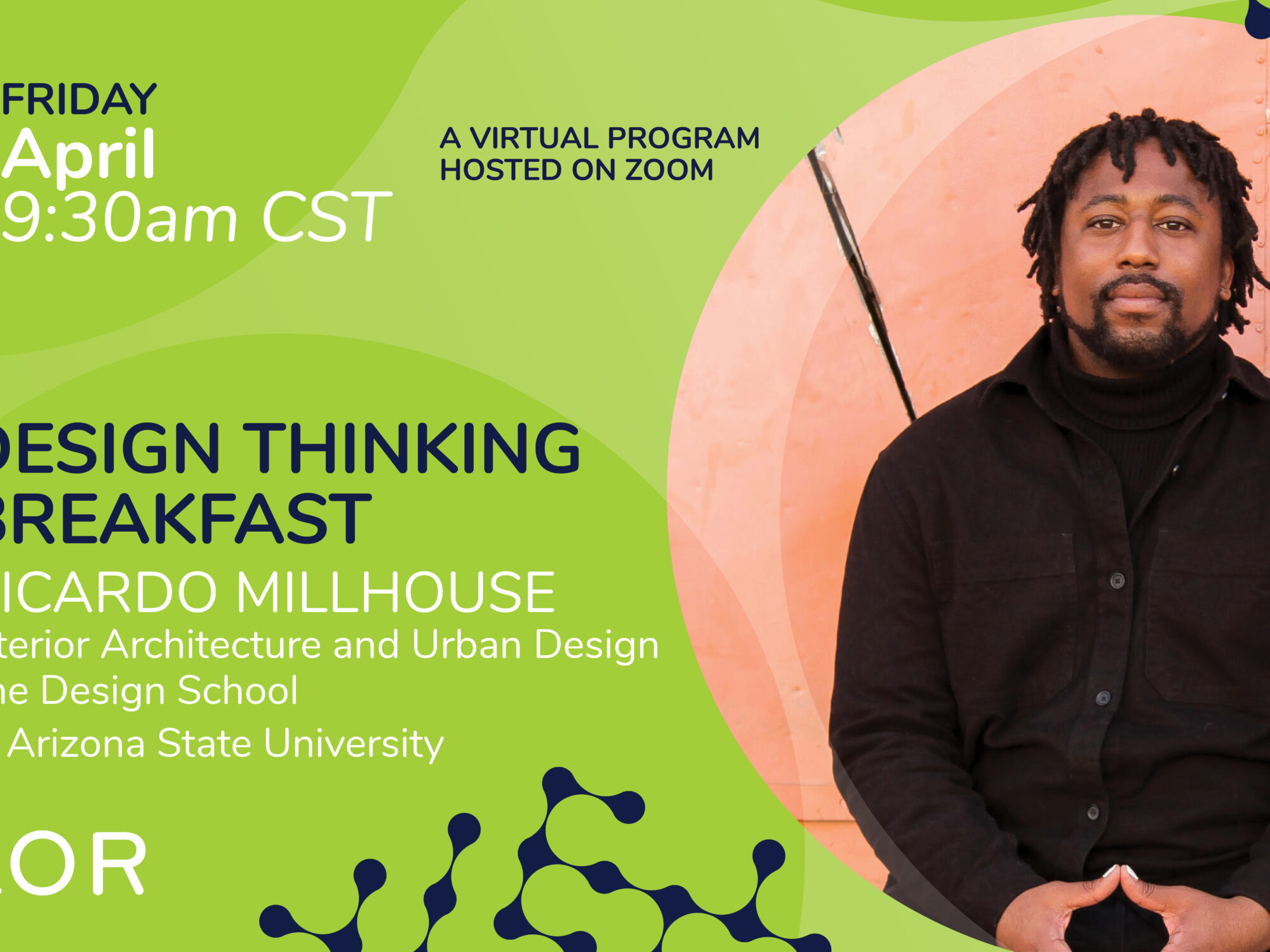BY NOAH LEJEUNE, 2022-23 DESIGN THINKING GRADUATE ASSISTANT
Have you ever looked into the intersection of policy, spatial marginalization, and design thinking? Do you desire to expand your perspective?
This past April, we wrapped up our final design thinking (DT) breakfast event, the culmination of a 6-event series held over the 2022-2023 academic year. Since the height of the COVID-19 pandemic, meeting with others in-person has been a difficult road to navigate, making virtual sessions a popular choice.
What is a Design Thinking Breakfast?
Design Thinking Breakfasts were created to be casual, accessible events where professionals, both familiar and unfamiliar with the design thinking process, in New Orleans, the Gulf South, and even across the country can connect and share ideas about the use of design thinking and related methods to guide social innovations.
Ricardo’s Presentation
The virtual April DT Breakfast session began with introductions and a land acknowledgment from Prof. Chris Daemmrich and I. Then, our wonderful facilitator, Ricardo Millhouse, introduced themselves by talking about their time at the Design School at Arizona State University, and about their experiences with the Queer Spaces Initiative. They also introduced their current book project Interiorities, which “explores spatial marginalization, economic deprivation, anti-Blackness, and sensation across Brooklyn, NY post-Stonewall to understand how and to what extent Black queer placemaking occurs across gentrifying Brooklyn.”
This introduction led to the overall goal of the session, which was to “explore the relationship between land use policies and past and current patterns of spatial marginalization.” Ricardo described three examples that spanned decades, which included the Federal Housing Association, the Interstate Highway Act, and airport design policies and processes. Specifically, they discussed historic redlining in the Black Bottom and Paradise Valley neighborhoods in Detroit and the effects of urban renewal and interstate construction on underrepresented communities. Also, they talked about the expansion of the Phoenix Sky Harbor Airport in Arizona in 2016, which caused the destruction of nearly 700 lots of the Golden Gate Barrio, highlighting the need to address past decision-making in terms of development policy and how to address discriminatory practices.
Watch the recording HERE to see Ricardo’s full presentation (00:00-39:30).
The Activity
Those present were asked to answer and discuss the following questions in a large group format: “How is the climate crisis including air pollution related to discriminatory policies?” Using the Whiteboard feature on Zoom, everyone then helped create a collage that incorporated aspects of the examples Ricardo talked about (Black Bottom in Detroit, the Interstate Highway Act, and urban renewal practices).
Check out the recording HERE to watch the full activity discussion (39:30-end) during the session.
Check out the group’s amazing collage they created during the activity/discussion below!
My Takeaways
Through this session, I found out about how ideas of anti-racist development policies can, and should, be balanced with changing populations and spaces, especially as those most affected by climate change are those also affected by discriminatory policies. Millhouse showed us that design thinking can be used to create more informed policies that incorporate viewpoints from not just industry and governments, but also the community affected most by changes in the built environment. The activity harnessed the power of virtual collaboration and despite being from different academic backgrounds, we as participants pulled from our unique experiences and knowledge to come up with design justice solutions without it feeling fake.
For me, this session was a great example of how when we want to discuss design justice in land use, there is an interconnection between policymakers, communities and their culture and health, and the environment that needs to be emphasized. I learned so much during this session, and I hope that my fellow participants will incorporate Ricardo’s wisdom into our daily work!
Do you need something to start your day on the right foot? Want to network with people in New Orleans and all around the country (maybe even the world)?
Please join us for our next design thinking breakfast on July 28th! You won’t regret it!




